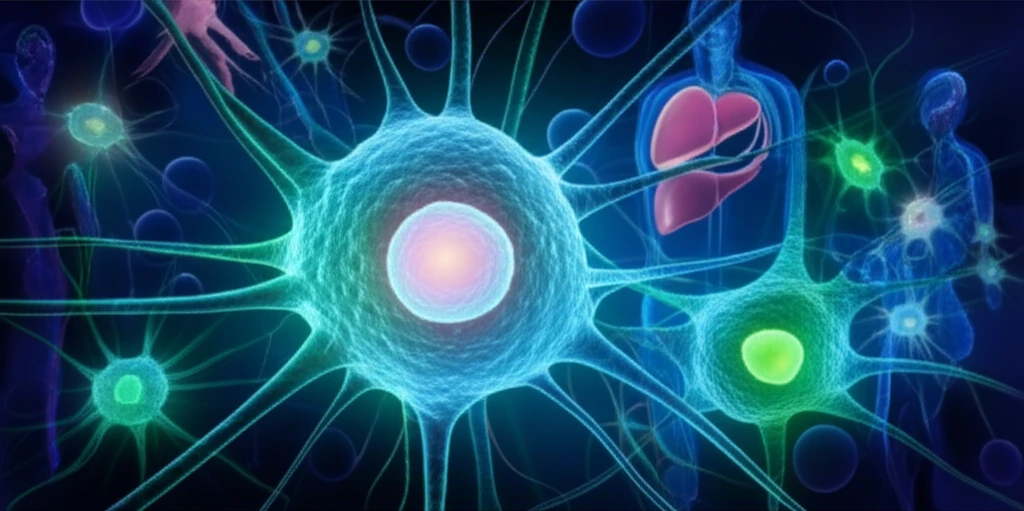
Autoimmune Insights: How Follicular Helper T Cells Impact Your Health
"Unlocking the role of Tfh cells in systemic autoimmune diseases for better understanding and treatment."
Your immune system, designed to protect you from foreign invaders, has a complex network of cells and processes. Among these components, antibodies play a vital role in neutralizing threats. However, sometimes this defense mechanism can turn against your own body, leading to autoimmune diseases. This occurs when antibodies mistakenly target your own tissues and organs.
T-dependent (TD) antibodies, which require the help of T cells to be produced, are particularly significant in chronic autoimmune conditions. These antibodies undergo a process of maturation, increasing their effectiveness over time, and can lead to long-lasting immune responses. Understanding how these antibodies are generated is crucial for tackling autoimmune diseases.
Follicular helper T (Tfh) cells are essential for the production of TD antibodies. Discovered in 2000, these unique cells reside in lymphoid tissues and assist B cells in producing antibodies. Despite their importance, the origins and functions of Tfh cells are still being explored, presenting a promising frontier for medical research.
Tfh Cells: Guardians or Agitators in Your Immune System?

When a foreign substance or autoantigen enters your body, it triggers a complex series of events involving both B and T cells. Naive B and T cells, which have not yet encountered an antigen, circulate in the body, waiting for activation. B cells typically reside in spherical structures called follicles, while T cells are scattered around these follicles. When an antigen appears, dendritic cells (DCs) activate naive CD4+ T cells. These activated T cells then differentiate into various types of effector T cells, each with a specific role.
- In the extrafollicular foci: B cells present the antigen to T cells, which in turn help B cells proliferate and differentiate into plasma cells, producing antibodies. This early response is mediated by Tefh cells and results in the production of antibodies with limited class switching and affinity maturation.
- After this initial response: A more robust immune reaction occurs within the follicles. Some of the activated T and B cells upregulate CXCR5 expression and migrate into the follicles, guided by the CCL19 and CCL21 concentration gradients.
- Inside the follicle: The T cells help B cells rapidly proliferate and form germinal centers, where somatic hypermutation and affinity maturation take place. This process is facilitated by follicular helper T (Tfh) cells, specialized CD4+ T cells that interact with B cells. This germinal center reaction leads to the generation of memory B cells and plasma cells with high-affinity antibodies.
The Future of Autoimmune Research: Targeting Tfh Cells
Follicular helper T (Tfh) cells are a group of Th cells residing in Lymph node, making it difficult to study. Over the past decade, research has established Tfh cells as an independent lineage while also highlighting their organic connection with other subtypes. In fact, invariant natural killer T (iNKT) cells also reside in the germinal center, indicating the diversity of cells called Tfh cells.
